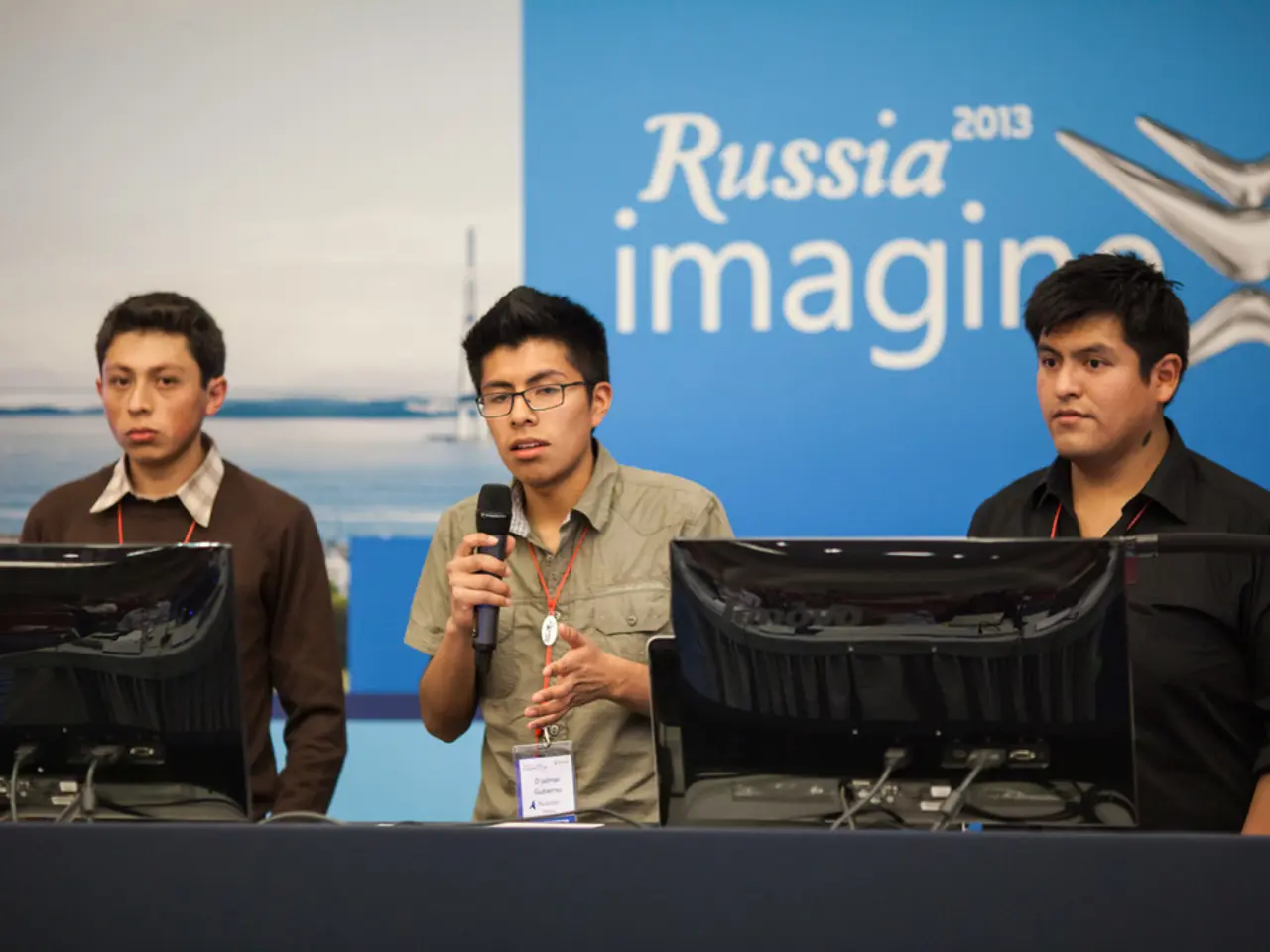implications of China's ban on Nvidia chips in the competition for artificial intelligence growth
In a significant turn of events, Chinese regulators have banned tech giants from purchasing Nvidia AI chips, marking a shift in the global AI landscape. This decision comes as Chinese companies had tens of thousands of Nvidia units on order, forcing an abrupt halt to verification work with suppliers.
The ban, which goes beyond earlier regulatory guidance, accelerates the creation of hardware-agnostic AI frameworks. This could potentially benefit the entire industry by breaking Nvidia's software lock-in and fostering innovation in specialized processors tailored for large language models and AI tasks.
Chinese chipmakers, including Huawei and Alibaba, are planning to triple AI processor output next year. Huawei's Ascend 910 series is set to lead the charge, while companies like Biren Technology and SMIC, supported by state-backed funding, are developing alternative CUDA-like platforms.
Beijing recently concluded that its AI processors matched or exceeded the capabilities of Nvidia products allowed under U.S. export controls. This development could signal that China's semiconductor industry no longer needs American AI hardware to compete.
The world's largest AI research community, primarily based in China, is focusing on efficiency over raw computing power. Chinese universities like Tsinghua and Peking have emerged as global AI research powerhouses, with Tsinghua ranking eighth globally in AI research output.
The ban has led Nvidia to exclude China from financial projections, essentially writing off what was once a fast-growing market. The company's China market share for AI data center chips has plummeted from 90% to 50% as domestic competitors gain traction.
The ban's implications extend beyond the Chinese market. Western companies lose access not just to China's market but to the massive datasets and real-world AI applications being developed there due to the ban. This could accelerate a bifurcated global AI ecosystem where Chinese and Western companies develop along separate technological tracks.
Nvidia's stock dropped around 4% due to the ban, and the company is exploring options but acknowledges that political dynamics now override commercial considerations. AMD's ROCm platform and other alternatives are challenging CUDA's dominance by offering open-source alternatives that work across different hardware architectures.
Training large language models with less powerful domestic chips may result in higher electricity costs and longer training timelines for Chinese companies. However, the ban could also force a fundamental rewiring of AI infrastructure at companies like ByteDance and Alibaba, potentially leading to long-term benefits in terms of innovation and self-reliance.
Read also:
- Musk threatens Apple with litigation amidst increasing conflict surrounding Altman's OpenAI endeavor
- E-mobility continues its progress after a decade since the scandal, staying on course
- The Commission deems the assistance program to be in agreement with the domestic market regulations.
- Innovative Garments and Accessories Producing Energy: Exploring Unconventional Sources for Renewable Power




